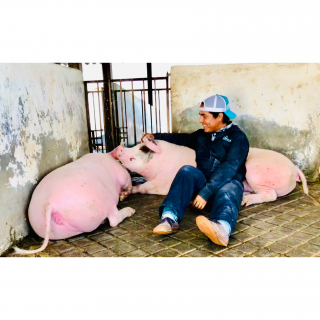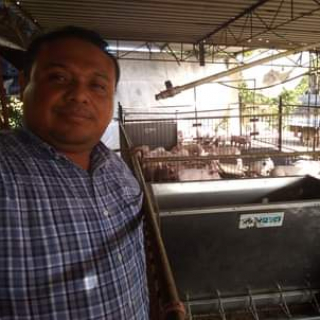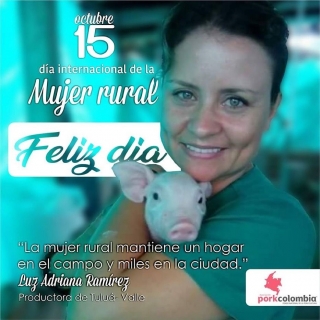
Juan Sanhueza
University of Minnesota - United States AuthorJuan studied Veterinary Medicine/Science at the University of Chile, graduating in 2004. During that year, Juan started to work for the Agriculture and Livestock Service (SAG), where he evaluated veterinary medicines for their sale in Chile.
In 2009, Juan started an MSc degree in Veterinary Studies (MVS), veterinary epidemiology, at the University of Massey (New Zealand). During this period, Juan carried out research regarding the role of infectious pathogens on beef cattle fertility, specifically in bulls positive to Campylobacter fetus subsp. venerealis and its link with abortions and seropositivity to BVDv, Neospora caninum, Leptospira borgpetersenii seovar hardjo and Leptospira interrogans serovar pomona.
In 2012, Juan started a Ph.D. on occupational leptospirosis in New Zealand (University of Massey, New Zealand). During this period, he researched the prevalence of antibodies against Leptospira in veterinarians and farmers, risk factors related to the serological status, and the relationship between serology and symptoms similar to influenza in these occupational groups. He also provided an estimation of the efficacy of the vaccination against Leptospira in cattle and the cost of human leptospirosis in terms of disability-adjusted life years lost (DALYs) and their economic value.
During 2016 he worked as research assistant in the Veterinary Epidemiology Centre (EpiCentre), at the University of Massey; and then he joined the University of Minnesota in 2017 as post-doc in the Department of Population Medicine, where he works in the Swine Health Monitoring Project, in which pig producing companies, that represent some 50% of the pig population in the USA, share voluntarily data on the incidence of PRRS and PED.
Updated CV 17-Oct-2017
 Pig producer
Mayahi Muni
Guatemala
Pig producer
Mayahi Muni
Guatemala
 Agronomist
Mónica Gandarillas
Chile
Agronomist
Mónica Gandarillas
Chile
 User
Carmen Aguilera
Other
User
Carmen Aguilera
Other
 Not set
Angelo Bozzola
Italy
2
Followers
Not set
Angelo Bozzola
Italy
2
Followers
 Pig producer
William Gallon
Colombia
3
Followers
Pig producer
William Gallon
Colombia
3
Followers
 Pig producer
Sébastien leblond
France
1
Followers
Pig producer
Sébastien leblond
France
1
Followers
 Veterinary practitioner/consultant
Anyi Gomez
Colombia
2
Followers
Veterinary practitioner/consultant
Anyi Gomez
Colombia
2
Followers
 Pig producer
Adebayo GANDAÏ
Benin
1
Followers
Pig producer
Adebayo GANDAÏ
Benin
1
Followers
 Pig producer
Екатерина Сотникова
Russia
2
Followers
Pig producer
Екатерина Сотникова
Russia
2
Followers
 Veterinary practitioner/consultant
Pamela Gomez Gomez
Dominican Republic
1
Followers
Veterinary practitioner/consultant
Pamela Gomez Gomez
Dominican Republic
1
Followers
 Pig producer
Alexis Ken
France
1
Followers
Pig producer
Alexis Ken
France
1
Followers
 Veterinary practitioner/consultant
Salvador Huerta
Mexico
1
Followers
Veterinary practitioner/consultant
Salvador Huerta
Mexico
1
Followers
 Veterinary practitioner/consultant
泽军 杨
China
2
Followers
Veterinary practitioner/consultant
泽军 杨
China
2
Followers
 Agronomist
Jose Garrido
Mexico
6
Followers
Agronomist
Jose Garrido
Mexico
6
Followers
 Pig producer
Jörn Ahlers
Germany
3
Publications
8
Followers
Pig producer
Jörn Ahlers
Germany
3
Publications
8
Followers
 Veterinary practitioner/consultant
Larra Romabon-Cacho
Philippines
5
Followers
Veterinary practitioner/consultant
Larra Romabon-Cacho
Philippines
5
Followers
 Veterinary practitioner/consultant
Andres Ardila
Australia
2
Followers
Veterinary practitioner/consultant
Andres Ardila
Australia
2
Followers
 Education/research
阿鳳 羅
Taiwan
1
Followers
Education/research
阿鳳 羅
Taiwan
1
Followers
 Veterinary practitioner/consultant
Осьмак Максим
Russia
1
Followers
Veterinary practitioner/consultant
Осьмак Максим
Russia
1
Followers
 Pig producer
Сергей Семендяев
Russia
1
Followers
Pig producer
Сергей Семендяев
Russia
1
Followers
 Pig producer
Johan Brandt
Canada
9
Publications
290
Followers
Pig producer
Johan Brandt
Canada
9
Publications
290
Followers
 Agronomist
Juan Pablo Garrido Herrera
Mexico
1
Followers
Agronomist
Juan Pablo Garrido Herrera
Mexico
1
Followers
 Student
Jesus Jose Escobar Carrasco
Mexico
19
Followers
Student
Jesus Jose Escobar Carrasco
Mexico
19
Followers
 Pig producer
Ирина Борисенко
Ukraine
11
Followers
Pig producer
Ирина Борисенко
Ukraine
11
Followers
 Pig producer
Massimo Viscarelli
Italy
181
Publications
413
Followers
Pig producer
Massimo Viscarelli
Italy
181
Publications
413
Followers
 Veterinary practitioner/consultant
Vitalii Chmut
Ukraine
8
Followers
Veterinary practitioner/consultant
Vitalii Chmut
Ukraine
8
Followers
 Veterinary practitioner/consultant
Mikle Chirtik
Belarus
2
Followers
Veterinary practitioner/consultant
Mikle Chirtik
Belarus
2
Followers
 Pig producer
Ventseslav Slavov
Bulgaria
7
Followers
Pig producer
Ventseslav Slavov
Bulgaria
7
Followers
 Education/research
Will Lopez
United States
8
Followers
Education/research
Will Lopez
United States
8
Followers
 Education/research
Cardenas Stefan
Peru
1
Followers
Education/research
Cardenas Stefan
Peru
1
Followers
 Veterinary practitioner/consultant
Larra Romabon
Philippines
6
Followers
Veterinary practitioner/consultant
Larra Romabon
Philippines
6
Followers
 Veterinary practitioner/consultant
luz adriana ramirez luna
Colombia
10
Publications
105
Followers
Veterinary practitioner/consultant
luz adriana ramirez luna
Colombia
10
Publications
105
Followers





